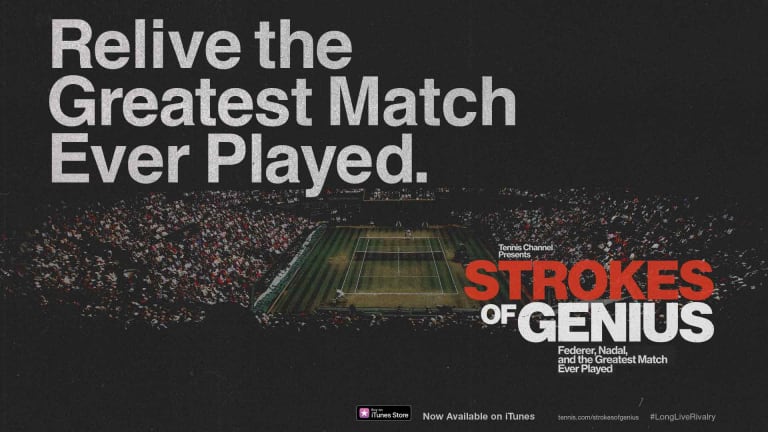Less than two hours in, Federer held a match point. Down two sets to love, Anderson served at 4-5, rapidly reaching 40-15, a second consecutive tiebreaker likely in the offing. But on the next point, a Federer forehand crosscourt return kissed the line for a winner. At 40-30, Anderson awkwardly fielded a Federer backhand down-the-line backhand pass. At deuce, Anderson meagerly poked a forehand into the net.
Down to his last chance, Anderson played superbly. Striking a 132-m.p.h. serve to Federer’s backhand, he elicited a short return. Anderson pounded a forehand approach deep to Federer’s backhand. Federer shanked the attempted pass. Said Anderson, “By that stage, I felt I was hitting the ball well.”
There had also come other opportunities for Federer throughout the protracted fifth set. Anderson served at 2-3, love-30, but escaped with a combo platter of a fine serve, sharp backhand, crisp forehand and, to close out the game, a 129-m.p.h. ace. At 3-4, deuce, a long Anderson backhand put Federer one point away from taking a 5-3 lead. But as it had throughout the match, the Anderson serve made the difference, a 128-m.p.h. service winner down the T. Anderson soon leveled for 4-all.
With Anderson serving at 5-6, Federer took the first two points. Once more, Anderson came through. At love-30, a 111 mph second serve winner; at 15-30, a set of forceful groundstrokes; at 30-all, a pair of concussive forehands, including a crosscourt laser that just landed inside the line.
“I've seen Kevin play very well off the baseline also against me in the past,” said Federer. “I wasn't feeling particularly well off the baseline. I couldn't really get the rallies going the way I wanted to, especially one-two punch wasn't working at all today. I don't know if it had something to do with the breeze, just a bad day from my side, except the first set. After that, I never really felt exactly 100 percent.”
Roger Federer's press conference after his stunning loss:
